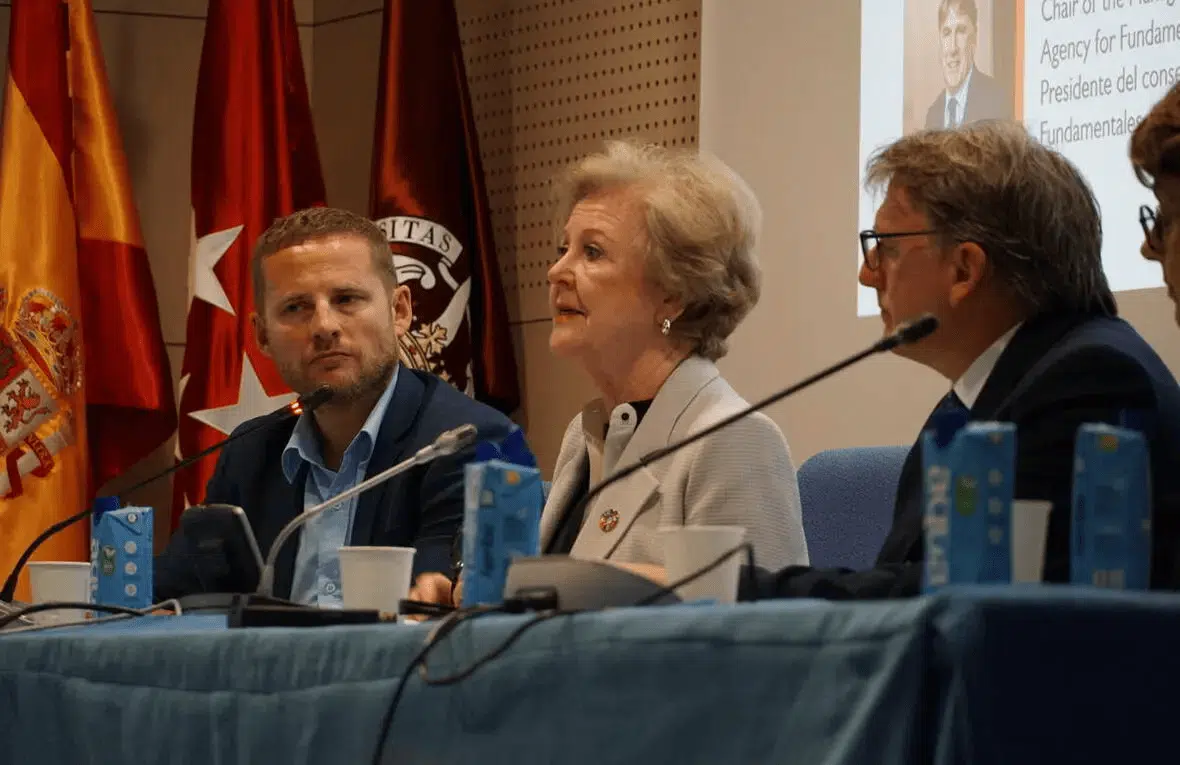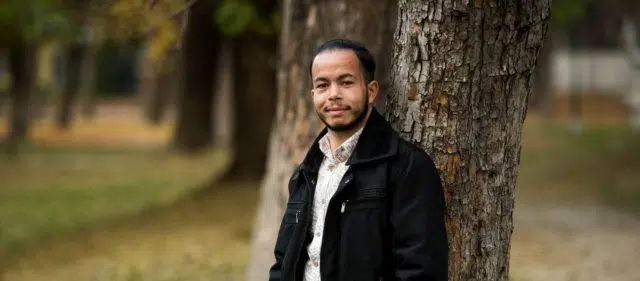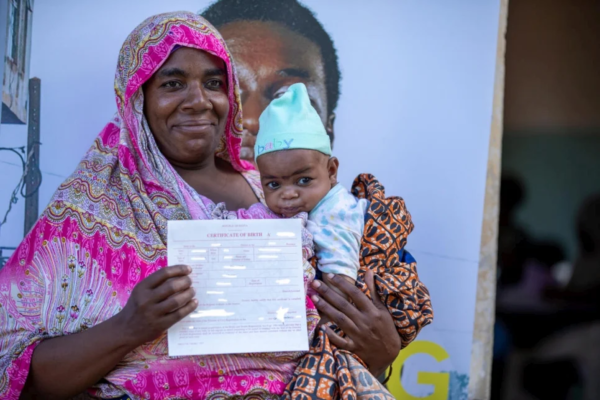
Gillian Triggs, Assistant High Commissioner for Protection, speaking at “Addressing Statelessness in Europe” conference in Madrid, organized by the European Network on Statelessness (ENS). © UNHCR/Lurdes Calvo
MADRID – In the lead up to this year’s Global Refugee Forum in December, and in the penultimate year of the decade-long #IBelong Campaign to end statelessness, representatives from governments, civil society, NGOs, stateless activists, refugee communities, intergovernmental organizations, experts, and lawyers gathered in Madrid pushing for concrete action to address the issue.
The conference, titled “Addressing Statelessness in Europe”, was organized by the European Network on Statelessness (ENS), with Fundación Cepaim and the Universidad Complutense of Madrid. It brought delegates together, with the aim of identifying ways to address current challenges and galvanize support for Europe to live up to its obligations to protect stateless people and ensure everyone’s right to a nationality.
“This event aims to raise awareness about statelessness in Europe, foster meaningful dialogue, and ultimately drive policy changes needed to address the needs and rights of stateless individuals” said Chris Nash, Director and Co-Founder of ENS.
Representing UNHCR, the UN Refugee Agency, Assistant High Commissioner for Protection, Gillian Triggs, discussed ways forward with the various stakeholders and to ensure the implementation of pledges to prevent and resolve statelessness in Europe, that were made at a High-Level Segment and the first Global Refugee Forum in 2019.
“Statelessness is one of the most pressing yet easily resolvable human rights violations of our time. There are people in Europe to this day who are denied the right to a nationality and the myriad of rights and opportunities that stem from it. But with simple legislative and policy reform, this can easily be rectified, so that no one is left behind,” said Triggs.
With millions estimated to be stateless around the world, UNHCR launched a decade-long, global #IBelong campaign in 2014, with the objective of eradicating statelessness globally. This campaign has served as a powerful platform for advancing efforts to end statelessness, and much progress has been made to date across Europe.
More European states have acceded to the UN Statelessness Conventions, provisions have been added to national laws to grant nationality to children who would otherwise be stateless, existing statelessness determination procedures have been improved and new ones introduced in several States. Efforts have also been made in several countries to facilitate naturalization.
Despite these positive developments, much remains to be done. Thousands of children continue to be born stateless in Europe each year, while data on statelessness remains weak and many countries still lack the procedures to identify stateless people amongst migrants and refugees, leaving them without adequate protection.
“It is encouraging to see the steps taken by many states including in Europe, towards ending statelessness. But we need firm commitments and more tangible progress from across society to tackle this issue. Working together, with stateless people at the forefront, we have the opportunity to ensure a lasting impact on the lives of the tens of thousands of stateless people who continue to struggle to access their fundamental human rights across Europe.” added Triggs.
The conference in Madrid comes at an opportune moment, in advance of Spain taking up the EU Council Presidency in the second half of 2023. As outlined in UNHCR’s Recommendations for the Swedish and Spanish Presidencies of the Council of the European Union (EU)Link is external, Spain has been a strong advocate for stateless people, evidenced through its’ pledge at the 2019 GRF to improve its’ statelessness determination procedure. UNHCR encourages Spain, during its presidency, to steer member states’ efforts towards a comprehensive strategy to end statelessness in Europe.
Additional info
- The European Network on StatelessnessLink is external is a civil society alliance of over 180 organizations and individual experts in 41 countries. ENS is committed to ending statelessness and ensuring that everyone living in Europe without a nationality can access the rights they are entitled to under international law.
- Fundación CepaimLink is external
- UNHCR Global Refugee Forum 2023
- UNHCR #IBelong Campaign





